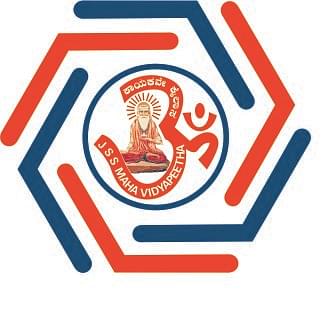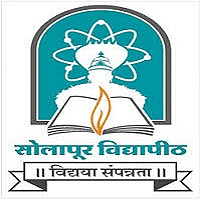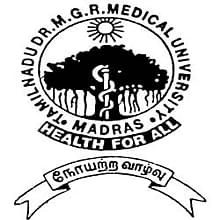Introduction about B pharma (Bachelor of Pharmacy)
B pharma from best university in India is an
undergraduate academic degree program that focuses on pharmaceutical sciences,
including the study of drug composition, formulation, manufacturing,
distribution, and use. It is a foundational qualification for individuals
aspiring to pursue careers in the pharmaceutical industry, healthcare,
research, academia, or regulatory affairs related to drugs and medicines.
Here's an introduction to B. Pharm:
![]() Duration: The
B. Pharm program typically spans four years, although in some countries or
educational systems, it may extend to five years, especially if it includes
internships or practical training components.
Duration: The
B. Pharm program typically spans four years, although in some countries or
educational systems, it may extend to five years, especially if it includes
internships or practical training components.
![]() Curriculum: The
curriculum of a B.Pharm program covers a broad range of subjects related to
pharmacy and pharmaceutical sciences. Some common subjects include:
Curriculum: The
curriculum of a B.Pharm program covers a broad range of subjects related to
pharmacy and pharmaceutical sciences. Some common subjects include:
![]() Pharmaceutical
Chemistry: Study of drug molecules, their properties, and synthesis.
Pharmaceutical
Chemistry: Study of drug molecules, their properties, and synthesis.
![]() Pharmacology:
Study of the effects of drugs on living organisms, including mechanisms of
action, therapeutic uses, and adverse effects.
Pharmacology:
Study of the effects of drugs on living organisms, including mechanisms of
action, therapeutic uses, and adverse effects.
![]() Pharmaceutics:
Study of drug formulation, dosage forms, drug delivery systems, and
pharmaceutical manufacturing processes.
Pharmaceutics:
Study of drug formulation, dosage forms, drug delivery systems, and
pharmaceutical manufacturing processes.
![]() Pharmacognosy:
Study of medicinal plants, natural products, and traditional medicines.
Pharmacognosy:
Study of medicinal plants, natural products, and traditional medicines.
![]() Pharmaceutical
Analysis: Techniques for the qualitative and quantitative analysis of drugs and
pharmaceuticals.
Pharmaceutical
Analysis: Techniques for the qualitative and quantitative analysis of drugs and
pharmaceuticals.
![]() Pharmacy
Practice: Principles of pharmacy management, patient care, counseling, and
dispensing of medications.
Pharmacy
Practice: Principles of pharmacy management, patient care, counseling, and
dispensing of medications.
![]() Biopharmaceutics
and Pharmacokinetics: Study of drug absorption, distribution, metabolism, and
excretion in the body.
Biopharmaceutics
and Pharmacokinetics: Study of drug absorption, distribution, metabolism, and
excretion in the body.
![]() Regulatory
Affairs: Overview of pharmaceutical regulations, drug approval processes, and
quality assurance in the pharmaceutical industry.
Regulatory
Affairs: Overview of pharmaceutical regulations, drug approval processes, and
quality assurance in the pharmaceutical industry.
![]() Pharmaceutical
Technology: Application of technology in pharmaceutical research,
manufacturing, and drug delivery systems.
Pharmaceutical
Technology: Application of technology in pharmaceutical research,
manufacturing, and drug delivery systems.
![]() Clinical
Pharmacy: Application of pharmacotherapy principles in patient care settings,
including medication therapy management and drug interactions.
Clinical
Pharmacy: Application of pharmacotherapy principles in patient care settings,
including medication therapy management and drug interactions.
![]() Practical Training: B.Pharm
programs often include practical training components such as laboratory
experiments, internships, or clinical rotations. This hands-on experience
allows students to apply theoretical knowledge in real-world settings and
develop practical skills relevant to their future careers.
Practical Training: B.Pharm
programs often include practical training components such as laboratory
experiments, internships, or clinical rotations. This hands-on experience
allows students to apply theoretical knowledge in real-world settings and
develop practical skills relevant to their future careers.
![]() Career
Opportunities: Graduates of B.Pharm programs have diverse career opportunities
available to them. They can work in various sectors, including:
Career
Opportunities: Graduates of B.Pharm programs have diverse career opportunities
available to them. They can work in various sectors, including:
![]() Pharmaceutical
Industry: Research and development, production, quality control, regulatory
affairs, marketing, sales, and distribution of pharmaceutical products.
Pharmaceutical
Industry: Research and development, production, quality control, regulatory
affairs, marketing, sales, and distribution of pharmaceutical products.
![]() Community
Pharmacy: Dispensing of medications, patient counseling, medication therapy
management, and healthcare services in retail pharmacy settings.
Community
Pharmacy: Dispensing of medications, patient counseling, medication therapy
management, and healthcare services in retail pharmacy settings.
![]() Hospital
Pharmacy: Drug distribution, medication management, clinical pharmacy services,
and pharmaceutical care in hospital settings.
Hospital
Pharmacy: Drug distribution, medication management, clinical pharmacy services,
and pharmaceutical care in hospital settings.
![]() Research
and Academia: Research positions in academic institutions, pharmaceutical
companies, or research organizations, as well as teaching positions in pharmacy
schools.
Research
and Academia: Research positions in academic institutions, pharmaceutical
companies, or research organizations, as well as teaching positions in pharmacy
schools.
![]() Further Education: B. Pharm
graduates can pursue higher education opportunities such as Master of Pharmacy
(M. Pharm), Doctor of Pharmacy (Pharm. D), or postgraduate
diplomas/certificates in specialized areas of pharmacy. These advanced degrees
can further enhance their knowledge, skills, and career prospects in specific
areas of interest within the pharmaceutical field.
Further Education: B. Pharm
graduates can pursue higher education opportunities such as Master of Pharmacy
(M. Pharm), Doctor of Pharmacy (Pharm. D), or postgraduate
diplomas/certificates in specialized areas of pharmacy. These advanced degrees
can further enhance their knowledge, skills, and career prospects in specific
areas of interest within the pharmaceutical field.
Overall, a B. Pharm degree provides a solid foundation in pharmaceutical
sciences and prepares graduates for rewarding careers in various sectors of the
healthcare and pharmaceutical industries.
What is eligibility for B pharma ?
The eligibility criteria for admission at top B pharma college in India program may vary
depending on the country, educational institution, and specific requirements of
the program. However, here are the common eligibility criteria observed in many
B.Pharm programs:
1.
Educational Qualifications:
Candidates must have completed high school or its equivalent, typically with a
science background. This usually includes completing 10+2 years of education
with subjects such as Physics, Chemistry, Biology or Mathematics, and English.
Some institutions may have specific subject requirements, so it's essential to
check the program's eligibility criteria.
2.
Minimum Marks: Many institutions require
candidates to have obtained a minimum percentage of marks in their high school
or equivalent examinations. The percentage cutoff can vary depending on the
institution and the competitiveness of the program.
3.
Entrance Examinations: In some countries,
aspiring B.Pharm students are required to take entrance examinations conducted
either at the national or state level. These exams assess the candidate's
aptitude in subjects like Physics, Chemistry, Biology or Mathematics, and
English. Examples of such exams include the Pharmacy Aptitude Test (PAT),
Graduate Pharmacy Aptitude Test (GPAT), or state-level pharmacy entrance exams.
4.
Age Limit: Some institutions may have an
age limit for admission to B.Pharm programs. Candidates typically must meet the
age criteria specified by the institution or regulatory body governing pharmacy
education.
5.
Language Proficiency: Proficiency in the
language of instruction, usually English, may be required for international
students or for programs taught in languages other than the candidate's native
language.
6.
Other Requirements: Depending on the
institution and country, there may be additional requirements such as
interviews, personal statements, or letters of recommendation.
What is duration of B. Pharma ?
The duration of B. Pharma program at top affordable college in India typically spans four years
in most countries. This duration may vary slightly depending on the educational
institution and the specific requirements of the program. However, in some
countries or educational systems, such as India, the B.Pharm program may extend
to five years if it includes additional components such as internships or
practical training.
Here's a general overview of the typical duration of a B.Pharm program:
v Four-Year Program: In many
countries, including the United States, Canada, Australia, and several European
countries, the standard B.Pharm program is a four-year undergraduate degree.
During these four years, students cover a comprehensive curriculum that
includes theoretical coursework, laboratory sessions, practical training, and
internships.
v Five-Year Program: In some
countries, such as India, the B.Pharm program may extend to five years. This
additional year may be dedicated to practical training, internships, or other
hands-on experiences in pharmacy practice settings. The five-year program is
designed to provide students with more extensive exposure to real-world
pharmacy practice and enhance their practical skills before entering the
workforce.
v Part-Time or
Accelerated Programs: In addition to the standard four-year and
five-year programs, some educational institutions may offer part-time or
accelerated B. Pharm programs. Part-time programs allow students to complete
their degree over a more extended period, often accommodating individuals who
need to balance their studies with work or other commitments. Accelerated
programs, on the other hand, compress the curriculum into a shorter timeframe,
enabling students to graduate sooner than in traditional programs.
Overall, the duration of a B. Pharm program can vary depending on factors
such as the country's educational system, the institution offering the program,
and any additional components included in the curriculum. Prospective students
should research the specific duration and structure of B. Pharm programs at the
institutions they are interested in applying to, to ensure they understand the
time commitment required for their studies.
What is syllabus of B pharma ?
The syllabus of B. Pharm program typically covers a wide range of subjects
related to pharmaceutical sciences, pharmacy practice, and healthcare. The
specific syllabus may vary slightly depending on the educational institution
and country, but here is a general overview of the common subjects and topics
covered in a B. Pharm curriculum:
§
Pharmaceutical Chemistry:
Inorganic Chemistry
Organic Chemistry
Physical Chemistry
Medicinal Chemistry
Biochemistry
§
Pharmaceutics:
Pharmaceutical Engineering
Pharmaceutical Formulation
Dosage Form Design
Biopharmaceutics and Pharmacokinetics
Pharmaceutical Technology
Dispensing Pharmacy
§
Pharmacology:
General Pharmacology
Pharmacodynamics
Pharmacokinetics
Autonomic Pharmacology
Central Nervous System Pharmacology
Cardiovascular Pharmacology
Endocrine Pharmacology
Chemotherapy
Toxicology
§
Pharmacognosy:
Study of Medicinal Plants
Natural Products Chemistry
Herbal Drugs and Formulations
Phytochemistry
Pharmacognostic Techniques
§
Pharmaceutical Analysis:
Pharmaceutical Instrumentation
Analytical Techniques
Spectroscopy
Chromatography
Quality Control and Quality Assurance
§
Microbiology and Biotechnology:
Microbial Physiology and Genetics
Industrial Microbiology
Immunology
Biotechnology in Pharmacy
§
Clinical Pharmacy and Therapeutics:
Pharmacy Practice
Drug Information Services
Patient Counseling
Pharmacovigilance
Clinical Trials
Rational Drug Use
Therapeutic Drug Monitoring
§
Pharmacy Management and Healthcare System:
Pharmaceutical Marketing and Management
Pharmacy Laws and Ethics
Healthcare Delivery Systems
Health Economics and Policy
§
Industrial Pharmacy and Regulatory Affairs:
Pharmaceutical Manufacturing
GMP (Good Manufacturing Practices)
Regulatory Affairs and Intellectual Property Rights
Industrial Safety and Environmental Management
§
Electives and Specializations:
Some programs may offer elective courses or specializations in specific
areas of pharmacy, such as hospital pharmacy, community pharmacy, clinical
research, pharmaceutical biotechnology, etc.
§
Practical Training:
Laboratory Work: Experimental work related to various pharmaceutical
subjects.
Industrial Training: Internship or practical training in pharmaceutical
industries or healthcare settings.
§ Project
Work: Research projects or dissertations related to pharmacy practice or
pharmaceutical sciences.
This syllabus provides a comprehensive foundation in pharmaceutical
sciences, pharmacy practice, and healthcare, preparing students for careers in
various sectors of the pharmaceutical industry, research, academia, or
healthcare services.
What are scopes of B pharma?
A Bachelor of Pharmacy (B. Pharm) degree offers graduates a wide range
of career opportunities in various sectors of the pharmaceutical industry,
healthcare, research, academia, and regulatory affairs. Here are some of the
scopes and career options available to B. Pharm graduates:
![]() Pharmaceutical
Industry: B. Pharm graduates can work in different areas of the pharmaceutical
industry, including:
Pharmaceutical
Industry: B. Pharm graduates can work in different areas of the pharmaceutical
industry, including:
![]() Research
and Development: Conducting research to discover and develop new
drugs and pharmaceutical products.
Research
and Development: Conducting research to discover and develop new
drugs and pharmaceutical products.
![]() Manufacturing:
Overseeing the production, quality control, and packaging of pharmaceutical
products in manufacturing facilities.
Manufacturing:
Overseeing the production, quality control, and packaging of pharmaceutical
products in manufacturing facilities.
![]() Quality
Assurance and Regulatory Affairs: Ensuring compliance with
regulatory standards and guidelines, managing quality control processes, and
obtaining regulatory approvals for pharmaceutical products.
Quality
Assurance and Regulatory Affairs: Ensuring compliance with
regulatory standards and guidelines, managing quality control processes, and
obtaining regulatory approvals for pharmaceutical products.
![]() Sales and
Marketing: Promoting and marketing pharmaceutical products to healthcare
professionals, pharmacies, hospitals, and consumers.
Sales and
Marketing: Promoting and marketing pharmaceutical products to healthcare
professionals, pharmacies, hospitals, and consumers.
![]() Distribution
and Supply Chain Management: Managing the distribution,
logistics, and supply chain of pharmaceutical products from manufacturers to
wholesalers, retailers, and end-users.
Distribution
and Supply Chain Management: Managing the distribution,
logistics, and supply chain of pharmaceutical products from manufacturers to
wholesalers, retailers, and end-users.
![]() Clinical Pharmacy
and Healthcare Services: B. Pharm graduates can work in clinical
settings, providing pharmaceutical care, medication therapy management, and
patient counselling services in hospitals, clinics, and healthcare facilities.
They may collaborate with healthcare professionals to optimize medication use,
monitor patient outcomes, and ensure safe and effective drug therapy.
Clinical Pharmacy
and Healthcare Services: B. Pharm graduates can work in clinical
settings, providing pharmaceutical care, medication therapy management, and
patient counselling services in hospitals, clinics, and healthcare facilities.
They may collaborate with healthcare professionals to optimize medication use,
monitor patient outcomes, and ensure safe and effective drug therapy.
![]() Community Pharmacy: B. Pharm
graduates can work as community pharmacists in retail pharmacies, drugstores,
or community health centres. They dispense medications, provide medication
counselling to patients, and offer healthcare advice on over-the-counter
products, health supplements, and medical devices.
Community Pharmacy: B. Pharm
graduates can work as community pharmacists in retail pharmacies, drugstores,
or community health centres. They dispense medications, provide medication
counselling to patients, and offer healthcare advice on over-the-counter
products, health supplements, and medical devices.
![]() Pharmaceutical
Research and Development: B. Pharm graduates can pursue careers in
pharmaceutical research organizations, academic institutions, or government
agencies, conducting research on drug discovery, formulation development, drug
delivery systems, pharmacology, pharmacokinetics, and pharmaceutical analysis.
Pharmaceutical
Research and Development: B. Pharm graduates can pursue careers in
pharmaceutical research organizations, academic institutions, or government
agencies, conducting research on drug discovery, formulation development, drug
delivery systems, pharmacology, pharmacokinetics, and pharmaceutical analysis.
![]() Academia and
Teaching: B. Pharm graduates can work as
faculty members, lecturers, or instructors in pharmacy schools, colleges,
universities, and academic research institutions. They can teach
pharmacy-related subjects, supervise research projects, and contribute to
academic and professional development programs.
Academia and
Teaching: B. Pharm graduates can work as
faculty members, lecturers, or instructors in pharmacy schools, colleges,
universities, and academic research institutions. They can teach
pharmacy-related subjects, supervise research projects, and contribute to
academic and professional development programs.
![]() Regulatory Affairs
and Compliance: B. Pharm graduates can work in regulatory affairs
departments of pharmaceutical companies, government regulatory agencies, or
consulting firms, ensuring compliance with pharmaceutical regulations,
standards, and guidelines. They may assist in obtaining regulatory approvals,
conducting regulatory audits, and monitoring regulatory changes.
Regulatory Affairs
and Compliance: B. Pharm graduates can work in regulatory affairs
departments of pharmaceutical companies, government regulatory agencies, or
consulting firms, ensuring compliance with pharmaceutical regulations,
standards, and guidelines. They may assist in obtaining regulatory approvals,
conducting regulatory audits, and monitoring regulatory changes.
![]() Pharmaceutical
Entrepreneurship: B. Pharm graduates with
entrepreneurial skills and business acumen can start their own pharmaceutical
ventures, such as pharmacies, drug manufacturing units, pharmaceutical
distribution businesses, healthcare consultancy firms, or pharmaceutical
marketing agencies.
Pharmaceutical
Entrepreneurship: B. Pharm graduates with
entrepreneurial skills and business acumen can start their own pharmaceutical
ventures, such as pharmacies, drug manufacturing units, pharmaceutical
distribution businesses, healthcare consultancy firms, or pharmaceutical
marketing agencies.
![]() Further Education
and Specialization: B. Pharm graduates can pursue
higher education opportunities such as Master of Pharmacy (M. Pharm), Doctor of
Pharmacy (Pharm .D), or postgraduate diplomas/certificates in specialized areas
of pharmacy, such as clinical pharmacy, pharmaceutical sciences, pharmacology,
pharmacognosy, pharmaceutical technology, or regulatory affairs.
Further Education
and Specialization: B. Pharm graduates can pursue
higher education opportunities such as Master of Pharmacy (M. Pharm), Doctor of
Pharmacy (Pharm .D), or postgraduate diplomas/certificates in specialized areas
of pharmacy, such as clinical pharmacy, pharmaceutical sciences, pharmacology,
pharmacognosy, pharmaceutical technology, or regulatory affairs.
There is wide range of scopes after B pharma .Every individual gets
overall development and also in field of science too.












